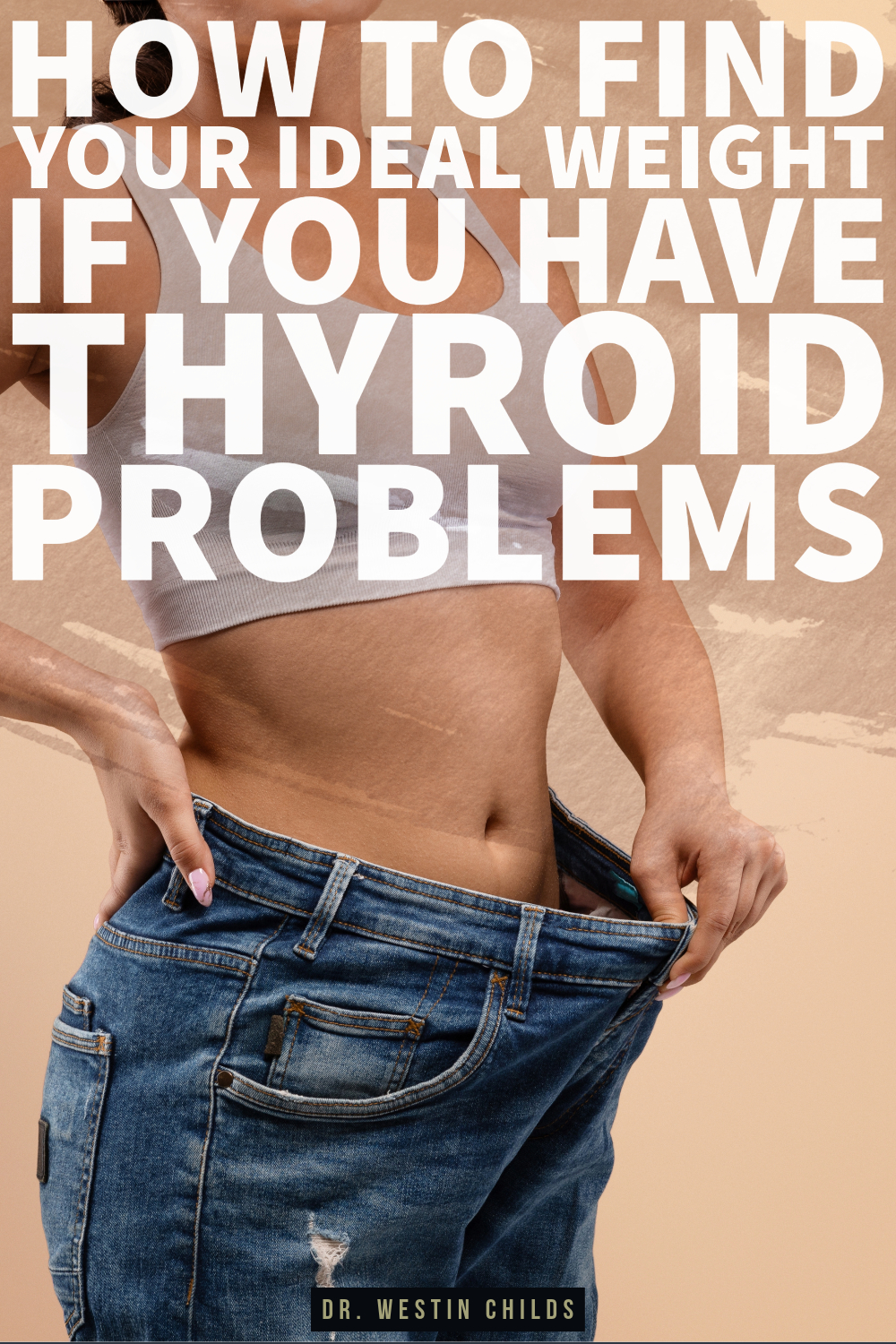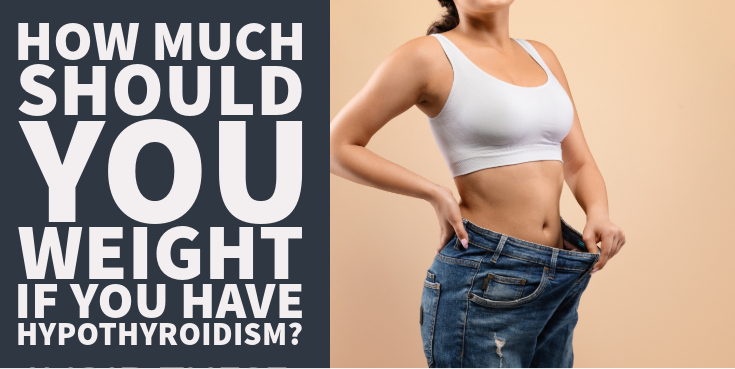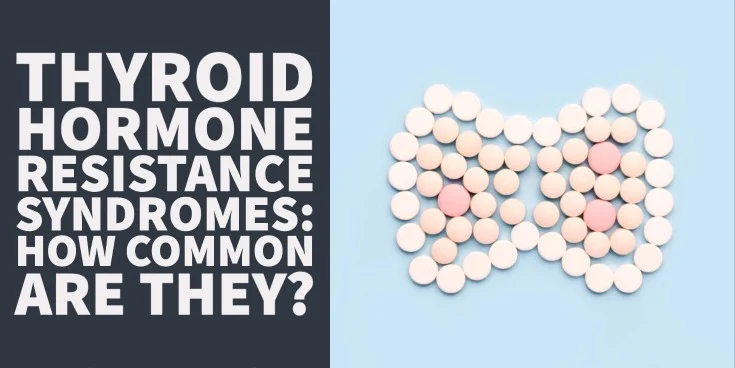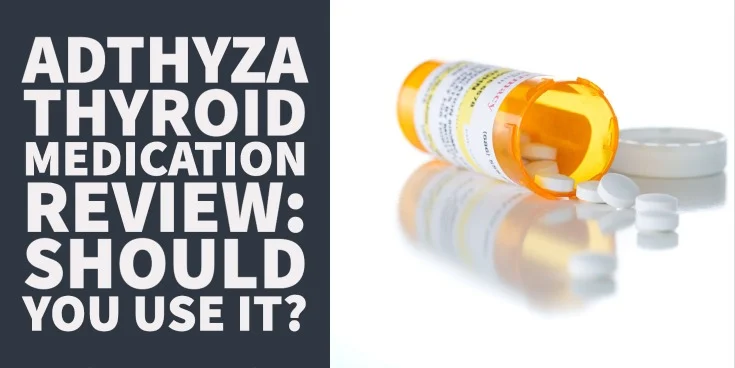Why does your body weight matter if you have hypothyroidism? Shouldn’t you just learn to be happy with your weight?
While I have no problem with how you think about your weight, there’s one thing you should know:
Your body weight may just be the single best measure of thyroid function (1).
And with up to 80% of thyroid patients struggling with weight gain, this means a lot of thyroid patients do not have their thyroid under control.
This is the reason I think it’s worth spending some time talking about weight.
DOWNLOAD FREE RESOURCES
Foods to Avoid if you Have Thyroid Problems:
I’ve found that these 10 foods cause the most problems for thyroid patients. Learn which foods you should avoid if you have thyroid disease of any type.
The Complete List of Thyroid Lab tests:
The list includes optimal ranges, normal ranges, and the complete list of tests you need to diagnose and manage thyroid disease correctly!
How To Assess Body Weight
Before we can talk about how much you should weigh, we need a quick discussion on the difference between weight and body composition.
Your weight as measured on a scale represents the sum total of everything in your body, including fat and muscle.
But when people talk about weight, what they are often referring to is fat.
When a thyroid patient says they want to lose weight, what they really mean is they want to lose fat.
They just associate a drop in the scale with a drop in fat, but, as you will soon see, this often isn’t the case.
As a percentage of your total body composition, fat is actually quite small and varies between men and women.
The average body fat percentage of a man is between 18 and 23 and 25 and 30 for a woman (2).
Compared to fat, muscle comprises about 40% of total body weight, meaning it makes a much larger contribution to the scale.
If we want to have a discussion about body weight in thyroid patients then it needs to include both fat, muscle, and height.
It doesn’t make sense to compare the body weight of a woman who is 5’1 to a woman who is 5’11.
For this reason, a good starting point when addressing how much you should weigh is BMI.
While imperfect, it at least takes into account your height and weight and spits out a number that is easy to understand and is strongly correlated with body fat which is what we care about.
What Should Your BMI Be?
You can calculate your BMI by going to this page and inputting your height and weight.
If you input your values and the number that it spits out is greater than 25, then that’s an indication that you fall into the overweight category.
If that value is greater than 30, then that’s an indication that you fall into the obese category.
The higher your BMI, the more fat you have on your body, it’s that simple.
If you’re like many people, this is probably around the time that you may start to get depressed and have feelings of self-doubt.
Don’t.
While everyone has made choices that have led to their current situation, you should know that hypothyroidism is a condition that promotes weight gain and muscle loss.
As a result, hypothyroid patients will often have a higher BMI than average, which is around 29-30 for women over age 20 in the United States.
I didn’t have you calculate your BMI because I wanted you to be depressed, I had you calculate it because of what it means for thyroid function.

If you go back to what I said in the beginning, this will start to make sense.
If your weight is a proxy for thyroid function, then patients who have a thyroid condition and an elevated BMI can make assertions about how well their thyroid is functioning.
This does assume that there are no other variables at play, which is often not the case.
For instance, you can’t blame your BMI on your thyroid if you are packing down soft drinks and potato chips.
But if you are otherwise eating a relatively healthy diet, then it can give you helpful information about your thyroid function.
How to Get Your BMI Into the Ideal Range
If you have hypothyroidism, then shooting for a BMI in the range of 18.5 to 24.9 is ideal.
Understanding where you need to get is the easy part, figuring out how you get there is harder.
But it may not be as hard as you think.
If your BMI is elevated due to low thyroid function, then it’s very likely that treating your thyroid may help you lower your weight with minimal effort.
The best way to do this is with the proper use of thyroid medication.
Here’s something I see all of the time:
Once thyroid patients optimize their dose, they will lose weight often without even making changes to their activity level or diet (3).
Thyroid medications contain active thyroid hormones which increase thyroid function and rev up the metabolism by stimulating your resting metabolic rate.
But what if you are already taking thyroid medication and not seeing a drop in your weight?
Well, then one of two things is true:
The first is that you aren’t taking the right type or dose of thyroid medication, which is common.
And the second is that you’re not as healthy or active as you probably ought to be.
Both of these problems are solvable, though, and both will help reduce your BMI.
If you’re already eating healthy and you think thyroid medication optimization is your problem, then adding T3 and T2 (4) to your regimen should do the trick.
If you know you aren’t eating healthy or being as active as you need to be, then start with that problem first.
A healthy lifestyle is one that will naturally improve your thyroid (5), so changing up your medication may not even be necessary.
Reducing BMI By Gaining Muscle Mass
You can also lose fat by building more muscle.
Muscle is an incredibly active tissue and requires a ton of energy just to maintain.
Thyroid patients who have normal muscle mass are often leaner just by virtue of how many calories they burn at rest.
But most thyroid patients suffer from a lack of muscle mass because they aren’t feeding their muscles the protein that they need.
If you’re someone who is not eating 100 grams of protein each day then you’re probably hamstringing your metabolism.
Don’t feel bad, though, because this is something you can fix right now with some dietary changes.
Should You Track BMI, Body Measurements, or Your Weight?
When it comes to assessing your fat loss, you have three different ways that you can attempt to measure it and there are pros and cons to each.
Probably the worst method for thyroid patients is the scale.
The reason is that thyroid dysfunction causes a lot of water retention and this fluid just serves to confuse people who often think they are gaining fat when they aren’t.
If you want to use it then don’t look at your daily weight, instead look at your weight as averaged over 7 days to smooth out the daily fluctuations from fluid.
Instead of using the scale, though, I’d recommend focusing on your BMI and body measurements.
These will give you a more accurate assessment of how much fat you are losing when you are losing weight.
Why it Matters
Why does all of this matter?
There’s a big push for people to just love their body as it is and, if that’s how you want to think about it, then go for it.
But if you ask me, the reason I want you to get your weight under control is because of what it means.
Having a normal weight means…
- You have better thyroid function
- You’re less likely to suffer from chronic medical conditions and debilitating diseases (6)
- You’re less likely to get cancer (7)
- You’re more likely to be happier (8)
- And you’re more likely to enjoy life (9)
I think many thyroid patients have resolved the idea that they will be overweight forever and it’s not worth trying anymore, but that couldn’t be farther from the truth.
99.9% of the time it’s possible to lose weight and get to your ideal body weight, but it will require that you avoid some common pitfalls.
If you want to see a list of the most common mistakes that thyroid patients make when trying to lose weight, then read this next.
Scientific References
#1. https://www.ncbi.nlm.nih.gov/pmc/articles/PMC5461198/
#2. https://www.ncbi.nlm.nih.gov/pmc/articles/PMC6356293/
#3. https://www.ncbi.nlm.nih.gov/pmc/articles/PMC8530721/
#4. https://www.frontiersin.org/journals/endocrinology/articles/10.3389/fendo.2018.00427/full
#5. https://www.ncbi.nlm.nih.gov/pmc/articles/PMC10071857/
#6. https://www.ncbi.nlm.nih.gov/pmc/articles/PMC9857053/
#7. https://www.ncbi.nlm.nih.gov/pmc/articles/PMC7344457/
#8. https://www.ncbi.nlm.nih.gov/pmc/articles/PMC8567540/









